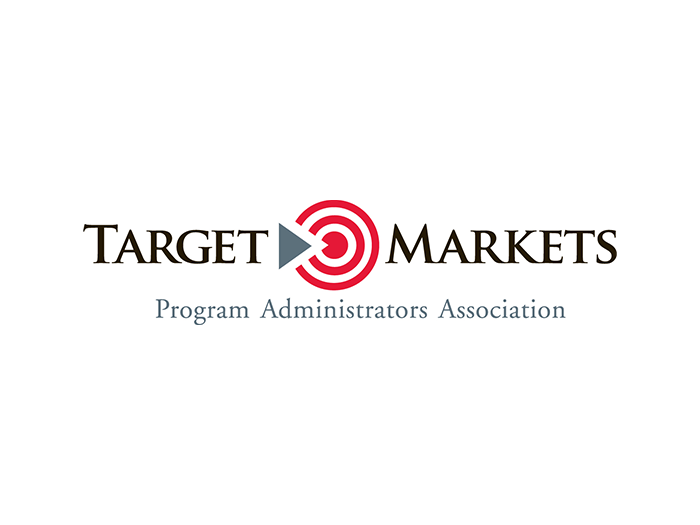How Women in Workers’ Comp Are Leveraging Change to Build Their Careers

“Research is telling us that, [for] kids coming out of school today, in eight to nine years their knowledge will be obsolete.”
That was a key point from speaker Lisa Ford at the 2019 Alliance of Women in Workers’ Compensation event “Learning How to Thrive and Not Just Survive,” which focused on how women can navigate change in the workplace.
The event was held Tuesday, Nov. 5 at the Mandalay Bay Resort and Casino in Las Vegas.
This statistic, and others Ford cited during her talk, illustrates how fluid the modern workforce is becoming as new technologies and mergers and acquisitions rapidly change professional landscapes and make some jobs obsolete.
“Kids coming out of school today will have anywhere between six and nine career changes,” Ford said. “I want to make certain that I’m not making quick decisions with all these changes going on in this industry.”
Held the day before the 2019 National Workers’ Compensation and Disability Conference® & Expo, The Alliance of Women in Workers’ Compensation held a workshop on this very idea of rapid change and how women can use it within the workplace to their advantage.
Ford presented the workshop’s keynote, addressing how individuals can adapt to change within their careers and how to harness ever-evolving work environments for professional success.
In addition to the keynote, panelists from within the industry, including Faith Mason, senior manager of workers’ compensation at Comcast; Stephany C. Quatro, vice president of network and provider relations for Zenith Insurance Company; and Dawn Watkins, director of integrated disability management for Los Angeles Unified School District, spoke about their personal and professional experiences with navigating change during M&As.
Embracing Change in Your Career
The first portion of the event opened with Ford’s keynote on how individuals can adapt to change in their careers. Ford began her talk by discussing the reality of change in today’s fast-paced world and then she segued into a discussion of how individuals can overcome the fear of change and harness it to build their careers.
Her talk touched on everything from new technologies disrupting the workforce to M&As that lead to shifting roles and dynamics within a company.
“How do I use change to define me professionally?” Ford asked the audience at the beginning of her talk. “How do we use it and not really run from it, because that’s the world we’re living in.
“We’ve got to get excited about embracing it instead of possibly resisting it,” she continued.
For people who are afraid of change in their careers, Ford recommended collecting information about what scares them, whether it be a new technology they aren’t sure they can manage or a sudden role shift within a company.
She then recommended that people ask themselves three questions to get over their fear: What’s the worst that could happen? What’s the best that could happen? And what’s likely to happen?
“Information is nourishment in the face of change,” she said.
“There’s a whole lot of mights around change. ‘I might have to make a move. I might lose this position. ‘I might have to learn technology.’ There’s a bunch of mights, and we have to get excited about those mights.”
Keep Your Team Thriving
While Ford’s talk largely focused on how individuals could embrace change in their careers, the second half of the event featured two discussions focused on how teams could navigate company and career changes during M&As.
This discussion started with a dialogue about M&As in workers’ compensation between two of the Alliance of Women in Workers’ Compensation board members: Artemis Emslie, president of Cadence RX, and Kimberly George, senior vice president of corporate development, M&A and health care at Sedgwick.
“In American business today, and insurance and workers’ compensation is no different, there needs to be a strategy around growth,” George said.
“Whether it’s startups, whether it’s venture capital backed firms, whether it’s a founder that wants to grow their business, or whether it’s even other competitors in the market, I say now is the time to run. Run fast, run smart, run hard.
“I think it’s a very exciting time for our industry, because we can either sit back and say, ‘why is this consolidation happening?’ or we can understand that it is the nature of American business to grow,” she added.
After this discussion, the event moved into a panel discussion where Mason, Quatro and Watkins answered questions submitted by attendees before the event about how individuals, teams and companies could manage M&As.
Their discussion focused on three major themes that arise during M&As: company culture, competition among new team members and communication.
Changes to company culture and competition among new employees were two areas that the panelists saw as inevitable during M&As.
“There’s that merging of cultures,” Watkins said. “The constant is change.”
“Competition is going to happen in any sort of M&A activity. I think you advise your employees that, yes, natural competition is going to happen and you should find a way to compete without jockeying,” Quatro added.
“The fortunate side of competition when it comes to M&A activity is giving your employees opportunities to shine … I think by just letting your employees know you’re there to support them and help them be the best they can be is a healthy competition.”
The panelists urged attendees to prioritize communication and to be transparent with their team members during M&As. Clear, honest communication can help employees adapt to the many changes that come with M&As, they said.
“My thing is always about being transparent,” Mason said.
“And making sure you’re willing to have that difficult conversation … If you value your team members, if you know that they’re the ones that have been working hard with you in the trenches, [than you know that] they deserve to know what’s going to happen to them day-to-day.”
“Communicate, communicate, communicate,” Watkins added. “Respect your employees.” &










